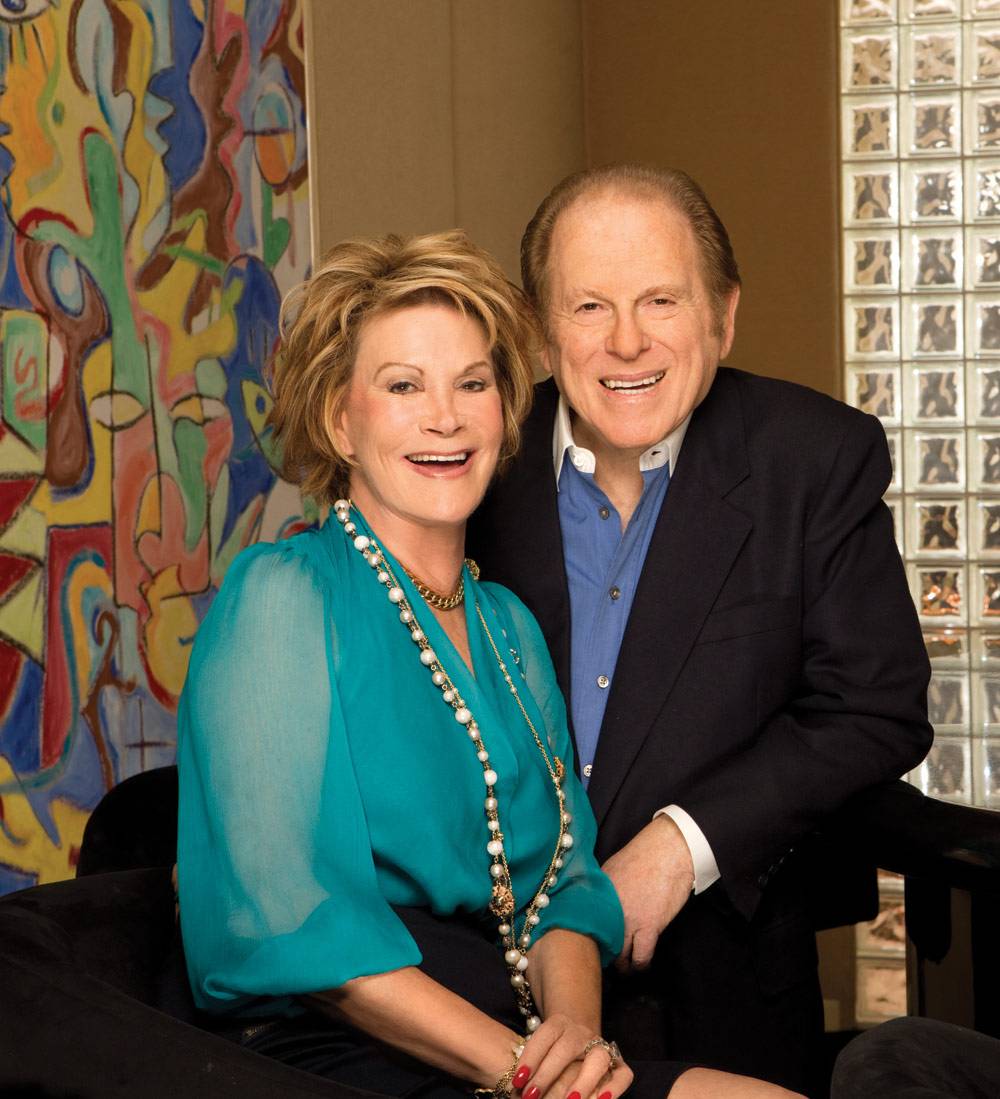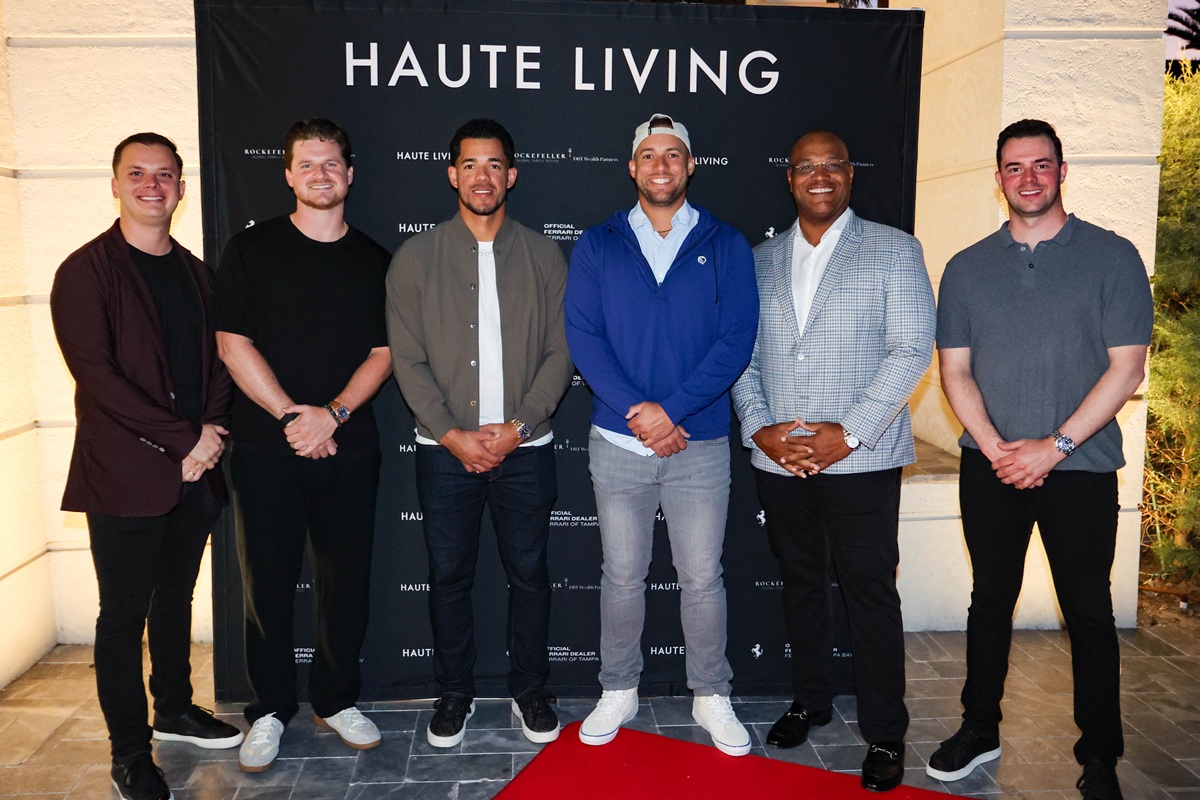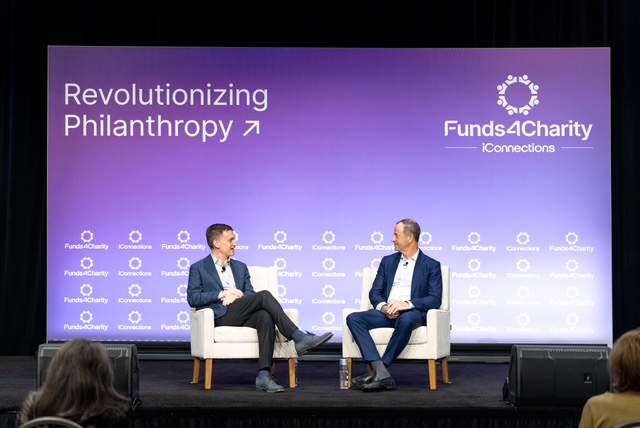Golden Man: Oscar-Winning Producer Arnold Kopelson Is Conquering Hollywood, One Award At A Time

Twenty-eight years ago, Arnold Kopelson won the Best Picture Academy Award for his American war drama, Platoon. He remembers the moment like it was yesterday.
“Next to the birth of my children, it’s the greatest achievement I’ve ever had,” Kopelson says. “There’s no high like an Academy Award.”
Kopelson, now 79, can vividly recall everything about the date of March 24, 1986. He remembers that Dustin Hoffman nearly announced the Best Picture winner without naming the nominees, that he was wiping wife Anne’s lipstick off his mouth in front of 38.93 million viewers and that his best laid plans went awry: despite rehearsing his speech in front of a video camera and writing careful “crib notes,” he was so overcome by the win that he briefly lost the power of speech.
“I got through the first two sentences before my mouth dried up to such an extent that I could barely open my jaw. The nerves had gotten to me,” the producer admits. “I had a momentary loss of speech. I looked down at the cards in my hand and they were all out of order. I can’t tell you what the panic was like.”
But Kopelson, of course, pulled it together and walked offstage to thunderous applause after giving what he proudly reaffirms was a “great speech.” This is the moment that made Arnold Kopelson, the gave him the career he has today. It is why “everyone in this town – everybody — takes my call.” Because he never intended to have a career in the entertainment industry – never mind such a successful one – the enormity of his achievement is staggering.
Kopelson started his career in the commercial world as a lawyer for motion pictures and banking, which eventually brought him into production. It wasn’t until he was practicing at a firm that represented several banks that were making loans to film companies that Kopelson started learning the language of entertainment, so to speak. He began traveling around the world with an independent movie financier and realized there was a specific niche he could fill in the international market for film financing.
What he found was a Western called The Last Rebel starring legendary NFL star Joe Namath. “He was not an actor,” Kopelson admits. “I didn’t realize how bad the movie was, but it sold all over the world. I made more money in my press book with that one film than in any year of being a lawyer. Everyone wanted that movie.”


The popularity of the film set Kopelson on his path of success licensing the movies of others. “I set up deals, I’d get a completion guarantee, and then I’d start the movie with a profit. That lasted until movies started to get very expensive, and it brought me into larger productions. But by that time, Platoon had happened.”
He recalls the moment he first read Platoon’s script, which was written by the then-virtually unknown Oliver Stone. “I was overcome,” he recalls. “I called Oliver when I had read 50 pages, and he said, ‘Not so fast; finish the script.’ So I got into bed with Anne, and I started reading. I got goose flesh. I pictured myself as the star, walking through the jungle and never knowing when I was going to get a bullet in the head. I was totally captivated by the writing. I had an actual fantasy of winning an Academy Award while I was reading it. I thought it was the greatest writing I had ever seen.
“When I finished, I had tears streaming down my face. Anne asked what was wrong, and I told her I was incredibly moved. She asked, ‘Will it make money?’ I said, ‘I really don’t know, but it’s just real quality and I have to make it. She told me to follow my instincts, so I met with Stone and we made a partnership to do the film.”
Few realize that the making of Platoon almost didn’t happen with Stone as a director, but that Kopelson figured out a way to save the day. “Oliver was just great, but Orion [the film company that produced Platoon] didn’t know if he could direct; they thought he couldn’t do it. He was working on a film called Salvador and Orion wanted him to make cuts because they thought it was too violent, and he was refusing. So I put my legal hat on and found out what specific cuts they wanted to make. I said, ‘If he makes these cuts, will you wholly or partially finance Platoon?’ They said yes, so I prepared the contract, specifying the cuts, and then met with Oliver and said, ‘This is your chance to make the movie of your dreams.’”
The rest, as they say, is history, forging a relationship between the two men that has lasted for nearly 30 years. “I saw Oliver a few weeks ago; we’ve maintained a relationship,” Kopelson says now, adding, “I have great feelings for him for making Platoon. It was his dream, his story and an extraordinary movie. I’m grateful to him. It got me an Oscar early on in my career.”
That career is one of success. His 30 movies to date such as Se7en, A Perfect Murder and Eraser have earned over $3 billion globally and have been responsible for one Academy Award and an additional 17 nominations. And it just keeps on going: Kopelson currently has a plethora of projects in development.
“I’m busier now that I have been in years,” the producer admits. He is working on several films as well as two television series, which is a natural evolution considering that he’s sat on the Board of Directors at CBS for nearly seven years.
“We just closed a deal to do a television series based on my movie, Devil’s Advocate, with John Wells Productions, and I’m also acting as a consultant on a series based on my movie, Outbreak, and an untitled series about going to Mars. It’s a reality-based fictional story,” he says.
He is working on four films, including a picture that Oscar winner William Friedkin will direct, as well as a film about George Gershwin and another based on the life of Dennis Hopper. The latter is currently being written and has been approved by the late actor’s family; he is working closely with the icon’s daughter on the project.
The film Kopelson is most enthusiastic about is his remake of Alfred Hitchcock’s 1951 thriller Strangers on a Train, which he’s developing for Warner Bros. He reveals that the modern-day version is ever-so-slightly tweaked from the original. The plot revolves around two strangers – a tennis player and a psychopath – who meet on a train. The psychopath suggests that because each of the characters wants to “get rid” of someone, they should swap murders and thus, neither will get caught.
David Seltzer, the writer of Bird on a Wire and The Omen has changed the tennis player character of Guy to a businessman with the same name who is about to be named Chairman of a highly profitable company; the psychopath, Bruno, will remain the same.
“I want to get a major player for the Bruno role,” Kopelson says. “We’re in the process of going after that now.”
Though he’s certainly going to have a hand in the casting process, Kopelson notes that he won’t have complete control, which is quite unlike what he was used to at the beginning of his career. “Hollywood is very different now,” he acknowledges. “On every one of my movies, I would cast every role. I would cast the major parts, the studio would approve it and then I would work with a casting agent for all of the minor roles; for that I wouldn’t have to get studio approval. Today, if you can get a movie made at all, you’re lucky.”
Despite his success, Kopelson is also familiar with rejection. “Every movie I’ve ever made has been rejected somewhere, and I’m talking about the blockbusters,” he admits. “You have to have passion, persistence and determination. Those are the three qualities that one must possess to be a successful producer and to make great movies. And I do persist. I don’t care if I’ve been turned down five times…I like to win.”














